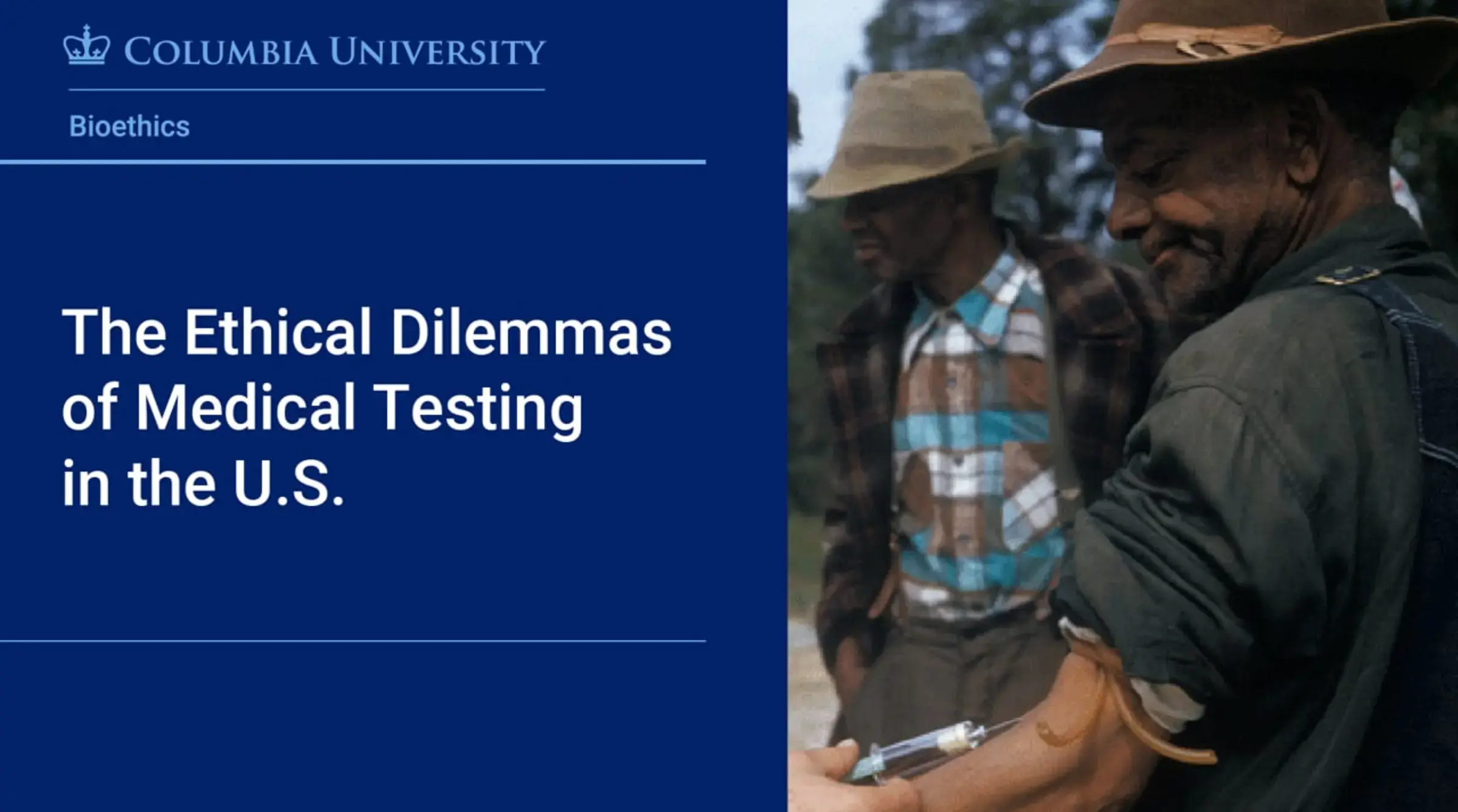Harriet Washington’s work in bioethics is grounded in her belief that healthcare should be both scientifically sound and ethically just. She is a science journalist, editor, author and lecturer in Columbia’s M.S. in Bioethics program. Washington’s journey—marked by resilience, intellectual curiosity, and a commitment to social justice—is what makes her an impactful and insightful lecturer.
Washington developed an interest in bioethics through her unique life experiences and commitment to challenging inaccuracies and biases in the medical field. Having faced systemic barriers herself, she focuses on addressing the ethical concerns that arise when certain populations are neglected or misrepresented in medical history and practice. For Washington, bioethics is not just about making the right decisions in the present—it’s about understanding the past and using that knowledge to build a more just and equitable future in healthcare.
The Path to Bioethics
Growing up, Washington aspired to become a doctor. She entered university as an exceptionally well-qualified student with stellar standardized test scores and grades in her AP science courses who had volunteered in hospital and research projects. As she got older and further down the path toward medical school, her plan was discouraged by authority figures who claimed that her goals were unrealistic because there were no Black women doctors, a message that deeply affected her.
“I felt kind of adrift because I really hadn’t given thought to what else I might do,” said Washington. “But I did love writing, so I studied English literature in college, and I enjoyed it. It wasn't clear to me how you could combine those interests, but I was determined to find a way.”
This is how Washington discovered science writing. Specifically, she became interested in the ways racial biases have led to historical distortions that continue to influence medical practices. Now, Washington has written multiple bestselling books, including Medical Apartheid, a seminal work that received the 2007 National Book Critics Circle Award for Nonfiction.
Challenging Received Wisdom
Washington’s passion for uncovering and writing about “hidden histories” was reinforced by her experiences in the medical field. When she worked in a psychiatric emergency department, she noticed that African American patients were disproportionately labeled as “schizophrenic.” When Washington questioned this discrepancy, she noted that the diagnoses were often described as "schizophrenic by history," which sparked her instinct to dive into their medical files herself. In many cases, she found no documented evidence of a formal diagnosis of schizophrenia.
Compounding the misdiagnoses, significantly higher doses of heavy tranquilizers were also prescribed to African American patients. When she asked a nurse why this was, the response was grounded in the myth that African Americans had greater muscle mass and metabolized drugs differently. Again, Washington attempted to find any scientific basis for this claim, but there was none. Experiences like this confirmed Washington’s suspicions that outdated and unfounded racial theories continue to impact patient care.
“Received wisdom can be really powerful, and if you haven't had anyone warn you beforehand that some of these beliefs are not true, and they're not backed by data, then we can't really expect students to understand that,” said Washington.
Learning from the Past and Teaching Bioethics
“When I read medical journals, it’s very gratifying to see so many scientists and physicians are now understanding how these issues infected medicine and want it to change,” says Washington. “That's a really laudable thing. But what I don't see is that awareness always affecting the medical school curriculum necessarily. It's not enough to acknowledge that this is wrong. We have to openly denounce such errors in order to change them.”
In her Race and Bioethics course, Washington emphasizes the importance of recognizing bioethical issues even when they are not explicitly labeled as such. For example, she points out that many experimental treatments are framed as “breakthroughs “without sufficient attention given to the ethical implications for the subjects involved. She stresses to students the importance of matters such as informed consent and patient autonomy and hopes to empower them to advocate for more just healthcare practices. Students are also encouraged to apply this knowledge to real-life work by, for example, writing op-eds that go beyond mainstream discourse and actively engaging with public forums to raise awareness.
Shaping Future Generations
To Washington, bioethics is not just about addressing scientific questions and decisions but also about considering the broader societal implications of those decisions. That perspective will prove especially relevant as students go on to work with patients from diverse backgrounds.
Washington hopes to foster a generation of healthcare providers, researchers, and writers who are not only skilled in their fields but also deeply committed to equity and justice. Through her exploration of race, history, and bioethics, Washington is making a lasting impact on the future of medicine.
About the Program
Columbia University’s Master of Science in Bioethics grounds students in interdisciplinary approaches and models to address pressing bioethical challenges such as stem cell research and health-care reform. The program prepares students to act as responsible and responsive leaders in this new and ever-growing field. It also includes a concentration in global bioethics—the first of its kind in the U.S. Columbia's Bioethics program offers a range of degrees and courses.



